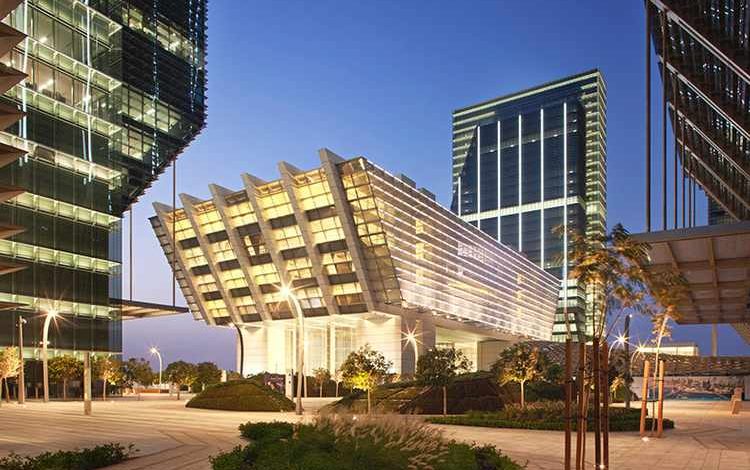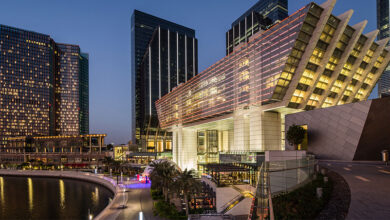Will 2020 be the year of action for Crypto assets, regulations and exchanges in GCC?

In 2019, the Gulf region or GCC, particularly UAE, witnessed a flurry of announcements when it came to cryptocurrencies, crypto assets, regulations and the launching or preliminary crypto asset exchange licenses in ADGM (Abu Dhabi Global Market) in Abu Dhabi. Yet throughout 2019, the region saw the launch of only one regulated and licensed crypto asset exchange which was RAIN crypto asset exchange in Bahrain.
While many of those who received preliminary licenses in UAE had stated that by the end of 2019 they would have fully fledged licenses allowing them to operate, this was not the case. So does this mean that 2020 will be the year of action, the year when we see the flourishing of these crypto asset licenses or it will remain the year of discussions, papers, and more of the same promises?
Crypto Exchanges in UAE 2019
The discussion of crypto assets and guidelines, as well as regulations took on a very strong foothold in 2019. ADGM was at the forefront with the announcement of its Guidance for Digital Securities activities to support development of digital assets under a comprehensive progressive regulatory framework. The new framework was complementary to ADGM’s previous guidance on Initial Coin/token offering and crypto assets that was launched in October 2017, and a regulatory framework in 2018
In 2019, ADGM provided a number of preliminary licenses for potential crypto asset exchanges and custodians. One of the first to receive the In Principle Approval from FSRA (Financial Services and Regulatory Authority) in ADGM was Matrix Exchange, an exchange sponsored by Digital Finance Group. DEX Exchange in UAE, BitOasis, ArabianBourse, Havyn, Midchains, and others. All of these exchanges expressed their excitement to be part of the regulatory sandbox within ADGM and had high hopes of launching before the end of 2019.
The importance of these crypto asset exchanges is in the fact that they would allow not only retail investors to invest in the crypto asset market under a regulated environment but would also give the trust needed to bring in the institutional investors. They would also help to flourish the digital asset and Security token market in the region. For example according to DEX, the platform would provide both retail and institutional grade investors to invest through a fully regulated exchange into crypto assets in a highly regulated financial ecosystem. All of these exchanges would operate under the Operating a Crypto Asset Business (OCAB) framework as enacted by the FSRA in ADGM.
Some of these Crypto asset exchanges were very lucky in 2019. They received either additional investment or other forms of support in 2019. For example BitOasis was accepted into Hub71 accelerator program while Midchains received investment in the form of an equity share from MIH Miami International Holdings and MIAX exchange group as well as receiving investment from Mubadala Investment Company in Abu Dhabi. This was one of the first instances where Mubadala had invested directly into a digital asset company in the Middle East. Even Havyn raised $5 million in capital to fuel its growth. Arabian Bourse as well received an multi-million dollar investment from HBK GoChain, a joint venture with HBK Department of Projects (HBK)based in ABuDhabi, and US based Gochain. In addition Securrency, Inc., a US-based provider of financial and regulatory technology products for the tokenized issuance and trading of securities, also announced its intention to secure a license to operate a crypto-asset business with strategic partners under the new Abu Dhabi Global Market (ADGM) crypto regulatory framework while it most recently received investment from Abu Dhabi Investment office.
Other Crypto asset exchanges also used the UAE as a launch pad or opened offices in the UAE in a bid to quench the thirst for crypto trading in the MENA market. Firms such as Bitbns announced that traders in the UAE would be able to buy and sell crypto on their platform using AED. Emirex Crypto asset exchange also announced that its EU licensed and regulated assets exchange had updated and improved their exchange for users in the UAE. While Bitex, a crypto exchanged licensed in DMCC (Dubai Mercantile Commodities Center) in Dubai also announced operations. Even world renowned Huobi opened offices in UAE through an OTC license within DMCC while it is working to receive a license from ADGM and Bahrain.
South Korean Bithumb expanded in the MENA region through UAE, as it announced an MOU with UAE Based Company Nvelop to help it expand in MENA in countries such as KSA and Bahrain. Bithumb was also seeking ADGM regulatory approval to launch its regulated crypto exchange. While Kraken Crypto exchange also seemed to be launching in the UAE as it announced job openings in 2019 Kraken currently has 4 million clients and has traded $140 billion in digital assets since its launch in 2011.
Yet there were others who announced they would be launching but then ceased to make any further inroads in this path. For example ADAB Solutions had announced that they were going to launch the first Islamic Crypto exchange in the UAE but nothing was realized. Even Locus Chain had announced it was going to open a digital asset exchange called Locus DEX but nothing as well materialized.
UAE Crypto regulations 2019
While ADGM and FSRA have done all they can to promote Abu Dhabi and UAE as a hub for crypto asset exchanges and service companies in the digital asset market, work within the UAE in other areas is needed. In 2018 Abu Dhabi Securities Exchange, ADX, announced the issuance of a thought paper on infrastructure for crypto and distributed ledger environment, and financial market infrastructures but then fell silent afterwards.
Then in October of 2019, the Emirates Securities and Commodities Authority which had promised to propose a crypto asset regulation by end of 2019 published a draft proposal and called for opinions and comments on it. The crypto asset regulation draft included 28 articles and touched upon all related activities with regards to crypto assets, issuing, transacting, storing and securing. It focused on investor protection and the curbing of financial crimes as well as security and data protection. Yet to date the final proposal has not been released or enacted. This UAE Securities and Commodities crypto asset regulation would be a big step in helping to develop the crypto and digital asset market in the UAE.
On another front the Central Bank of the UAE does not at the moment seem to support crypto currencies but does want to develop a Fintech office to position the bank as a coordinating authority. According to the Central Bank Governor, Mr. Mubarak Rashid Al Mansouri, “The aim of the FinTech Office will be to position the Central Bank as the coordinating authority, as the author of prudential market conduct regulatory requirements, and as an enabler and facilitator of FinTech activities in the UAE.” He added, “Our effort is to cooperate with other entities, so that we have a UAE-approved regulatory framework. Then once this is done, we will push this agenda regionally because we also want our fintech to be cross-border. For fintechs to flourish, they need regulatory acceptance, and if this regulatory acceptance is not present onshore, you are by default eliminating a big chunk of the country.” The Fintech office is to be opened in a few months, noting that the announcement came in November 2019.
Even the digital currency project called Aber, between The Saudi Arabian Monetary Authority (SAMA) and the United Arab Emirates Central Bank (UAECB) which was to be used in financial settlements between the Kingdom of Saudi Arabia and UAE through Blockchains and Distributed Ledgers technologies, has yet to be launched.
Bahrain Crypto Exchanges 2019
Bahrain on the other hand in 2019 witnessed the launch of the first fully licensed crypto asset exchange called RAIN. It became operational in mid-2019 and was also the first Sharia compliant crypto exchange. In one of the statements made by RAIN Co-Founder Abdullah AlMoaiqel, he stated, “We love the futuristic display of rain financial by the Bahrain Economic Development Board, very grateful for their support through their incredible team. What a privilege to be a part of building the future for crypto-assets in our region.” RAIN exchange also received substantial investments from Vision Ventures and also received another round of Funding from Bitmex ventures and other investors.
Other crypto asset exchanges have also applied to be part of the Central Bank of Bahrain regulatory sandbox. These crypto asset exchanges include names such as Palmex, Ethereum based Sprinkle Exchange and most recently Burency Exchange.
Bahrain has been at the forefront of Fintech development including crypto asset regulations as it seeks to establish itself as a major hub for ICT innovation. In 2017, the Central Bank of Bahrain announced they had created a regulatory sandbox for Fintech. This sandbox would also cover crypto and blockchain technology. Then in early 2019 the Central Bank announced its final crypto asset rules. In addition Bahrain Fintech Bay alongside the Central Bank have worked diligently to implement this strategy. The Bahrain Economic Development Board has also been a strong partner with the Central Bank of Bahrain when it came to its Fintech strategy. In an interview with Dr. Simon Galpin, Managing Director of EDB (Economic Development Board) Bahrain, he stated, “We offer an advantage in that we have only one single financial services regulator. Moreover one of the beauties of our regulatory sandbox is the partnership with Central Bank that not only shapes the regulatory environment to assist startups to flourish but has positioned us as leaders when it comes to onshore regulatory sandboxes which allow Fintech startups to do business and test products with clients in Bahrain from day one. This has been one of our major attraction points.”
Conclusion:
While the UAE has made some strides and announcements that will help to foster the crypto asset market in the region and while this has attracted many interested entities one has yet to witness the official launch of any of these crypto asset exchanges in the midst of unfinished regulations and proposals. It is the hope of many that in 2020 more excerpted efforts will be made by all parties across the UAE and we will witness a flurry of activity in this sector. It will also be interesting to see what happens in Bahrain in 2020 as well, as more and more crypto asset exchanges launch from there.




